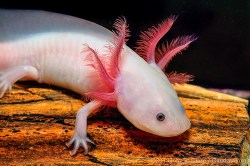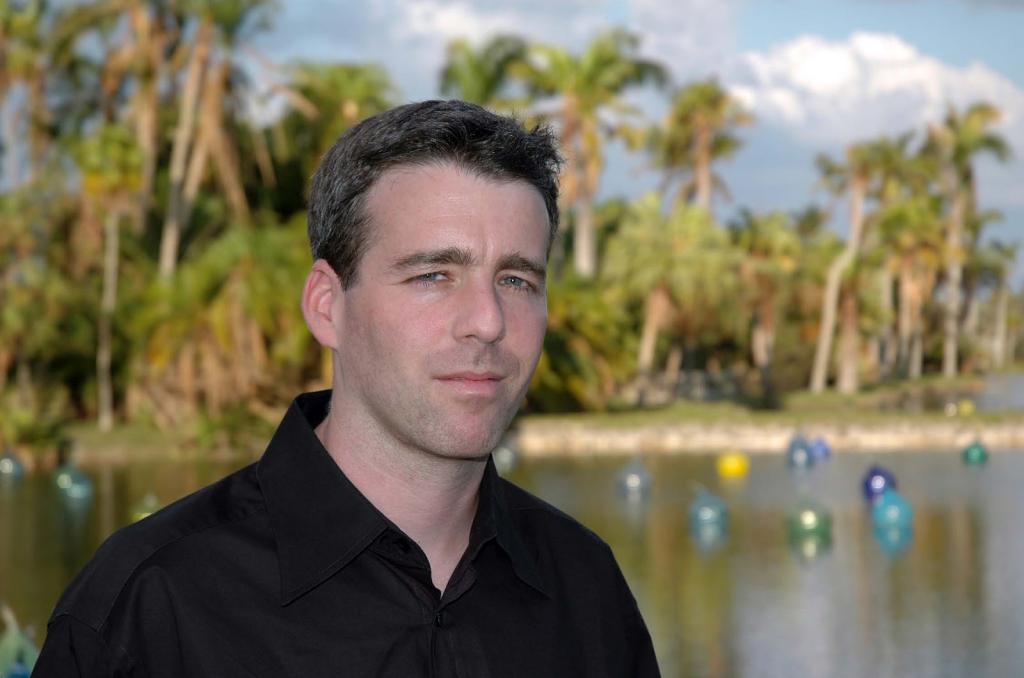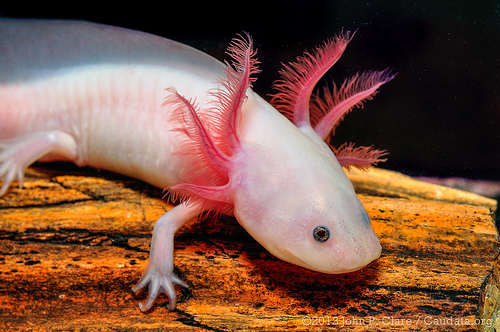
The elusive axolotl. (Photo by John P. Clare.)
“Should we be like gods? Should we control the whole thing — who gets food, what the weather is, where it will rain, what species get to live and die?”
-Susanne Moser, climate researcher, consultant, and Aldo Leopold fellow at the Stanford Woods Institute
About two months ago, the Generation Anthropocene radio team was invited to Santa Cruz for a conference for the Aldo Leopold Leadership program in environmental science. Leopold was one of the grand old dudes of the environmental movement, and you probably think that a program sporting his name screams “old white man reeking of patchouli.” But the conference was actually really cool.
Sure, there were plenty of old-school, save-nature-’cause-it’s-really-neat conservationist types. But the Leopold fellows are world leaders in the environmental sciences. They’re smart as hell, if not a bit dorky. The Leopold program trains scientists to communicate their work with a broader audience, and its leaders are especially interested in catching the ear of the next generation.
As they put it, they’re tired of the “gray hairs” in the room. They want to know if we give a damn about climate change, mass extinction, and the global binge on natural resources.
Well, we wondered, why should we care?
One response from environmental scientists is that nature provides big bucks when you run the numbers. Whether you want to filter water, pollinate crops, or have microbes to chew up toxic waste, it turns out the planet (i.e. wetlands, bees, etc.) can do it a whole lot more cheaply and efficiently than we can. Those in the know call these “ecosystem services,” and proponents love to number-crunch the cash value of the planet in order to coerce the world to go green.
Then again, there’s something bizarre about slapping price tags on every last critter in every corner of the planet. How much is an axolotl — a crazy Pokemon-like salamander living in the wetlands around Mexico City — worth? How do we justify saving endangered species if they aren’t delivering the return on our capital investment?
That’s where the old-school “save nature for nature’s sake” argument comes in — and we found a few folks at the conference who were arguing for that, too.
The debate over why to save nature goes back over 100 years, but it has never been more relevant than it is now, in the Anthropocene — the geologic age of man, where we’re calling the shots.
In this episode, we bring you excerpts from our interviews with a half-dozen experts, covering everything from weeds to shades of green to that crazy Mexican salamander (which apparently doesn’t taste half bad) …
Free MP3. (Right click, select “Save Link As.”)
This interview is part of the Generation Anthropocene project, in which Stanford students partake in an inter-generational dialogue with scholars about living in an age when humans have become a major force shaping our world.



